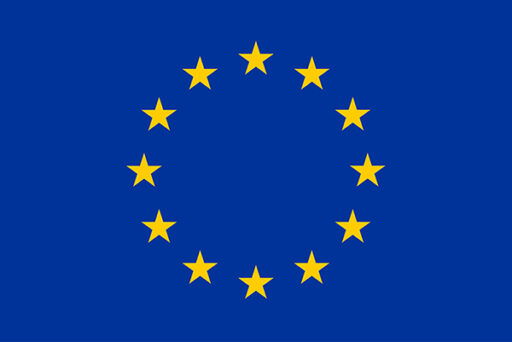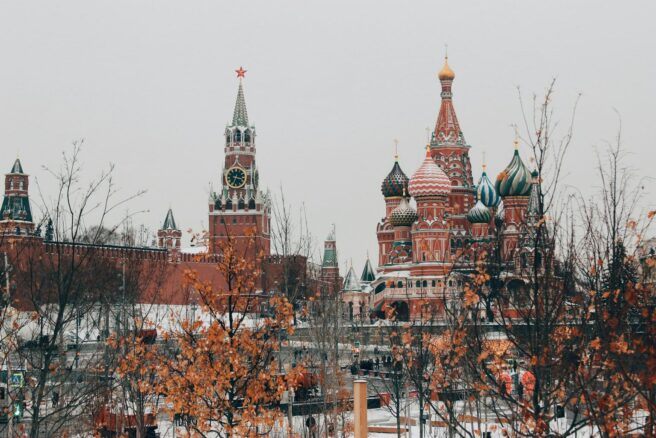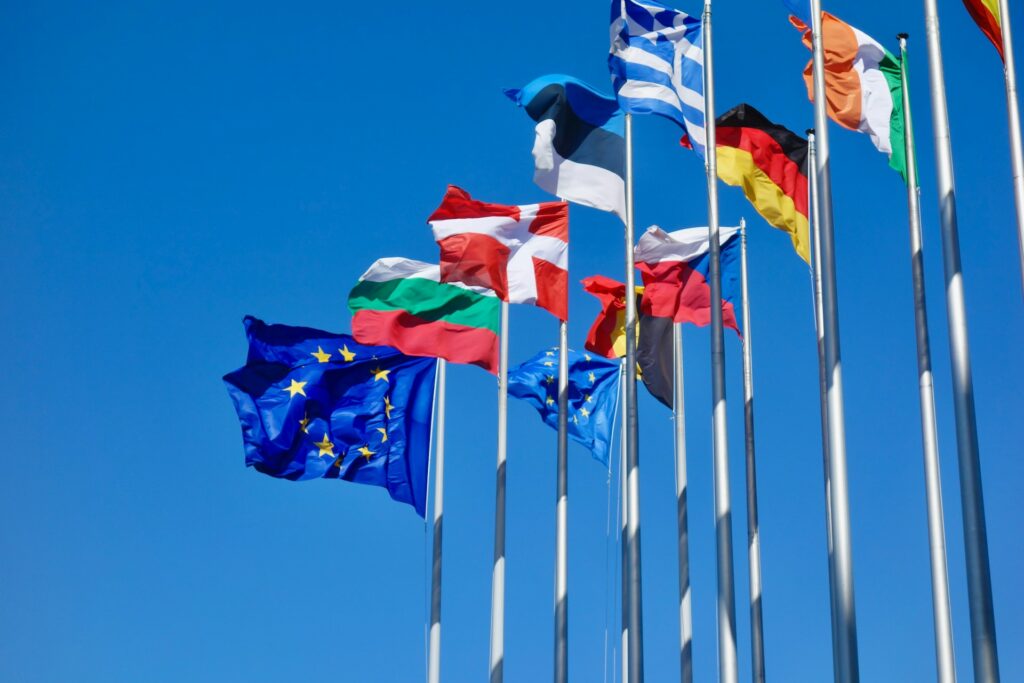The Russia-Ukraine war is all about the question of what sovereignty is and should be today. People’s freedom to determine one’s own future contrasts Russia’s power-based conception of state sovereignty.
Among Russian leaders, there is a deep-seated fear of being encircled, invaded, subjugated and colonized. This fear is not completely misplaced, as Russia has been invaded by the Poles in 1610, the Swedes in 1709, the French in 1812, the Germans in 1940. These historical events have contributed to the formation of a national narrative that Russia is the innocent victim of Western aggression.
Similarly, Vladimir Putin portrays Russia as a victim of machinations, false promises, and unilateral actions. This politicized narrative of victimhood, popularized by a political scientist John Mearsheimer, starts by telling the stories about how Russia was betrayed, disgraced and outmaneuvered with the admission of Eastern European countries into the NATO and into the European Union.
Since his inauguration as a President, Putin has exploited the political jargon of sovereignty to push back against Western liberal democracies buttressed by non-governmental organizations, for example human rights organizations, military alliances, advanced technologies, and individualist values. By valorizing a capacity to decide on one’s way of life, on one’s form of government, on one’s economic policies, Putin poses himself as a sole guardian of Russia’s national interests and multiethnic civilization.
When resisting Western powers in the name of freedom and sovereign self-determination, it looks as if the Russian elite speaks from the position of weakness against the powerful who do not want to listen their vital concerns and worries. This is perhaps why this political rhetoric of victimhood is so seductive and appealing around the world. Perhaps, there is an emancipatory intent, a will to offer a political alternative.
Unmasking Russia’s Valorization of Sovereignty
But Russia’s assertion of sovereignty does not live up to its liberatory promise – and that for two reasons, at least.
First, Putin’s defensive posture against the West is coupled with another – more aggressive – one, as he longs for the resurgence of national sovereignties and power politics in Europe and beyond, with Russia at the forefront of this venture. The people sitting in the Kremlin are convinced that central political decisions are not made in Germany, France, the UK, let alone in Eastern European Countries, that instead, they are made in faraway places across the Atlantic Ocean.
Second, in the Global South, Putin celebrates the virtues of sovereignty, but in Russia’s neighborhood, he sees any signs of desire for the exercise of a sovereign self-determination as the source of “extremist nationalism,” as the primary sources of instability, hatred, and wars. This restrictive condition to the application of sovereignty is not just a hypocrisy, but a testimony to how Russia, in its struggle against West colonialism, has not even bothered to come terms with its own colonial past and present.
Russian leaders desire the right to determine not only the fate of Russia but also (or rather) the future of its numerous neighbors in Eastern Europe, Caucasus and Central Asia who they believe are sovereign only on paper. Russia’s claim to sovereignty is not simply the emancipatory claim to a national or civilizational independence – it is much broader in scope, involving the far-fetched desire for the recognition of its superiority in the post-Soviet space.
Great Powers and the People
Sovereignty, as it is understood in the Kremlin, is the attribute of the state power, which can be objectively measured by economic and financial statistics, population size, manpower, and military power. To be sovereign in these terms means to have a capacity to sustain a capable military, an autarkic economy, a cultural uniqueness and patriotically minded elite, as Ivan Krastev suggests.
According to such a vision, only great powers are truly sovereign, while all the rest – in other words, most of the countries – must inevitably submit to the will of the stronger. Real sovereignty is backed up by the hard military power, whereas the sovereignty of the weaklings is built on empty words and juridical fictions. Thus understood, sovereignty is a pompous privilege of the few, not the right of all countries, no matter what size.
The way in which Russia interprets and uses the modern idea of sovereign self-determination should be understood in relation to a desire to be a great empire and an independent power-center in the world stage. And at stake in the war against Ukraine is precisely the fate of Russia’s empire along with the great power status. In the case of losing the war, Putin believes, Russia will become a marginal, second-rate power, which comes down to saying it will lose sovereignty. Loss of power over other nations means the loss of sovereignty.
The way in which Russia interprets and uses the modern idea of sovereign self-determination should be understood in relation to a desire to be a great empire and an independent power-center in the world stage.
Endorsing this power-centered approach in thought and in practice, Putin sees the Ukrainian state and nation as artificial constructions, created by hostile forces in a whirlwind of twists and turns in history. Also, the war itself is a tragedy provoked artificially by evil foreign powers, especially, by American imperialists. Ukraine can be “truly” sovereign only if it is cleansed from “extremists,” “ultra-nationalists,” “fascists” in Kyiv, and thus led back to its “natural” path – sit back onto Russia’s lap.
To live up to its superior status and to justify its actions, power strives to measure itself up against and confront other power(s) – but not the people, especially the Slavic brothers. Thus viewed, the Ukrainian people is a mere pawn, a manipulable mass in great power rivalries. The conflict between Russia and Ukraine is shifted to a more abstract plane – to the geopolitical plane on which Russia portrays itself as waging war against the America’s bid for dominance in the world.
What is at stake in Putin’s policies is not the sovereign right of self-determination, but rather the sovereign self-assertion of power. Minorities, peoples, nations, human rights, Transatlantic Relations, European Union, non-governmental organizations – these are just some of the hurdles on the way to unfold fully the Russian power that is unjustly castrated and restricted.
By way of contrast, the Ukrainian people fight for their political independence and territorial integrity, thus overturning the framework of power politics along with its patronizing recommendations to accept the harsh realities of power, one’s “natural” place in the hierarchy of power.
What is revealed with Ukraine’s struggle against the aggression is that the power-based conception of state sovereignty finds its true limit not in counter-power, but rather in the sovereign will of a people to determine its own future. For Putin, this is a hard truth to swallow.
Negotiating Sovereignty
The critical question before us today is whether there is a path from the deadlock of war to the negotiation table. More than any other public figure, Jeffrey Sachs argues that the potential for the escalation raises an urgent need for a diplomatic dialogue.
To end the war, Sachs is convinced that the United States should recognize Russia’s special interests in its neighborhood and promise not to expand the NATO eastward. It is very easy to negotiate the balance of powers behind the closed doors. And according to such a logic, the war would not have broken out if the President Joe Biden were more generous and accommodating towards Russia’s demands.
This economist’s mindset that departs from the bitter criticism of US foreign policy and politics in general is flawed not only because of geopolitical reasons, but – and more importantly – because it downplays something incalculable, something what makes negotiations almost impossible – namely, the people’s sovereign will to decide on its own future. What caused the war is precisely the impossibility of negotiating peacefully between two conflicting claims to sovereignty.
Hence, the key question is whether there is any room for political negotiations between two antagonistic positions – that is, between state sovereignty and popular sovereignty, a will to dominate and a will to be independent, a geopolitical will to divide the world into the spheres of influence, and a will to decide freely one’s own future, a sovereignty as the will of the strongest and a sovereignty as a right.
Considering the current stalemate in the battlefield, it looks as if sovereign victory is more and more impossible. Sooner or later, there must open a window for political negotiations. But for that to happen, the aggressor, Russia, must be forced to realize, that power, even a nuclear power, has limitations.
Janar Mihkelsaar works as a Marie Curie post-doctoral fellow at the University of Jyväskylä.
This project has received funding from the European Research Executive Agency under the European Union’s Horizon TMA MSCA Postdoctoral Fellowships – Global Fellowships action (grant agreement No 101065769).
Funded by the European Union. Views and opinions expressed are however those of the author(s) only and do not necessarily reflect those of the European Union or the European Research Executive Agency. Neither the European Union nor the granting authority can be held responsible for them.
Article image: Unsplash / European Union






